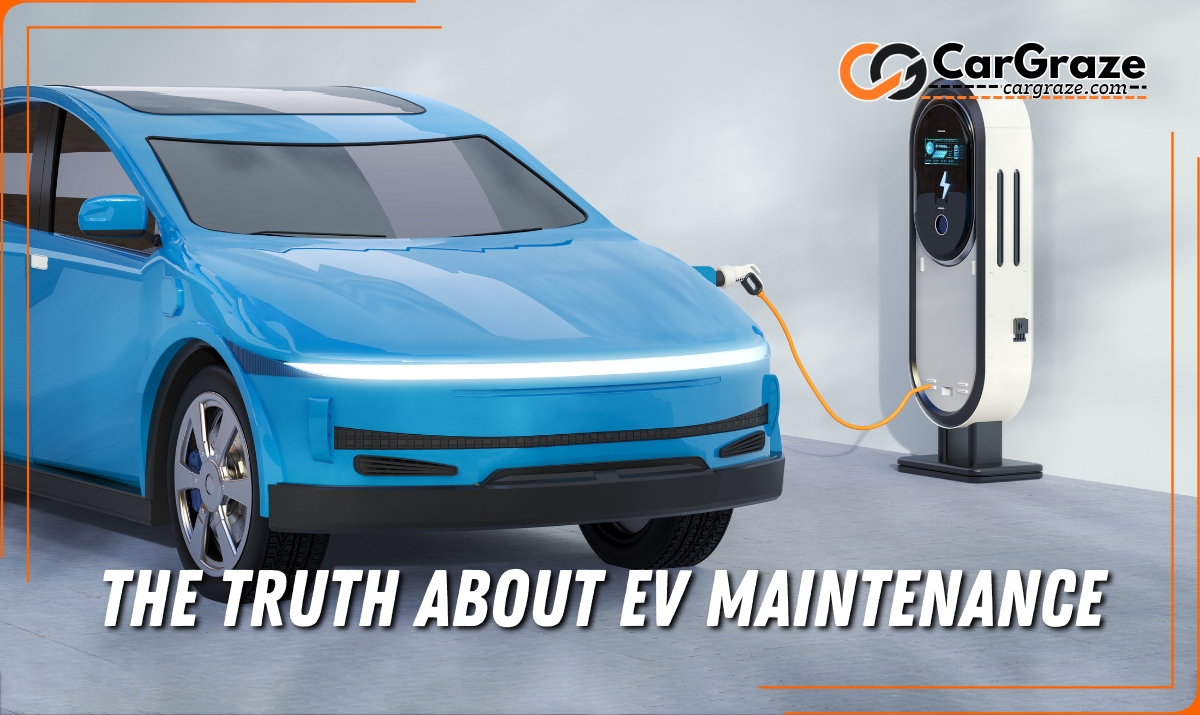
The Ultimate Guide to Electric Car Maintenance: Everything You Need to Know
Electric vehicles (EVs) are becoming the future of transportation, and with rising fuel prices and climate change concerns, many people are making the switch. But the big question remains: Do electric cars need maintenance? Let’s dive into the details, exploring the pros and cons of EVs, their maintenance requirements, costs, and suitability for long-term use - especially for those in India.
Do Electric Cars Need Maintenance?
Yes, electric cars do require maintenance, but significantly less compared to traditional internal combustion engine (ICE) vehicles. This is because EVs have fewer moving parts and don't rely on oil for lubrication or an intricate transmission system.
Here’s what you might need to maintain:
- Battery Health: Over time, the lithium-ion batteries in EVs degrade. Regular checkups ensure the battery operates efficiently.
- Brakes: EVs use regenerative braking, which reduces wear and tear on brake pads, but occasional servicing is still required.
- Tyres: Like any vehicle, tyres need regular rotation and alignment checks.
- Software Updates: EVs are highly software-driven, and manufacturers frequently release updates for better performance and features.
- Cooling Systems: The battery and motors require proper cooling, so coolant levels should be checked periodically.
What Are the Downsides of an Electric Car?
While EVs offer several advantages, they aren’t perfect. Here are some of the potential downsides:
- Initial Cost: EVs tend to be more expensive upfront than their gasoline counterparts.
- Charging Infrastructure: Although improving, charging stations are still limited in many regions, especially in rural areas.
- Charging Time: Unlike refuelling a gas car in minutes, charging an EV can take anywhere from 30 minutes (fast charger) to several hours.
- Battery Degradation: Over time, EV batteries lose capacity, affecting range and performance.
- Limited Range: Although newer EVs boast ranges of 400–500 km per charge, range anxiety is still a concern for some drivers.
- Resale Value: With rapidly evolving battery technology, older EVs may have a lower resale value.
What Is the Maintenance Cost of EV Cars?
Electric cars generally have lower maintenance costs compared to traditional vehicles. A study suggests that EV owners spend about 40% less on maintenance over the vehicle’s lifetime.
- Annual Maintenance Cost: In India, you might spend around ₹5,000-₹10,000 annually, depending on the brand and usage.
- Battery Replacement: While rare, replacing an EV battery can cost anywhere between ₹3,00,000 to ₹7,00,000. Thankfully, most manufacturers provide warranties of 8-10 years on batteries.
What Is the Maximum Lifespan of EV Cars?
The lifespan of an EV largely depends on its battery. On average:
- Battery Life: Most EV batteries are designed to last 8-15 years or around 1,50,000-3,00,000 km before needing replacement.
- Car Longevity: With proper care, an EV can last as long as or even longer than a traditional car - 15-20 years or more.
Are EVs Good for Long Runs or for Those Who Keep Cars for a Long Time?
Yes, EVs are a solid option for long-term ownership, but they come with caveats.
Positives for Long-Term Use
- Lower Running Costs: Electricity is cheaper than petrol or diesel, especially with solar-powered charging stations.
- Durability: EV motors are simple and robust with fewer parts to wear out.
- Resilience: Regenerative braking reduces strain on traditional braking systems, extending their lifespan.
Challenges for Long-Term Use
- Battery Degradation: After 8-10 years, you might notice reduced range and efficiency.
- Technological Obsolescence: EV tech is advancing rapidly, so today’s model might feel outdated in a decade.
Long-Run Costs of EVs in India
Owning an EV in India can be cost-effective in the long run. Here’s a breakdown:
- Electricity Costs: Charging an EV for 300 km might cost ₹150 - ₹300, compared to ₹2,000+ for petrol or diesel.
- Maintenance: With fewer parts, servicing is cheaper.
- Subsidies: The Indian government offers subsidies under the FAME (Faster Adoption and Manufacturing of Hybrid and EVs) scheme, reducing upfront costs.
- Insurance: EV insurance is slightly higher but offsets through lower running costs.
The Positive and Negative Sides of EVs
| Positives | Negatives |
| Environmentally friendly with zero emissions. | High initial cost. |
| Lower running and maintenance costs. | Limited charging infrastructure in some areas. |
| Smooth and quiet driving experience. | Concerns about battery life and replacement costs. |
| Government incentives and subsidies. | Long charging times compared to refuelling. |
Conclusion: Should You Buy an EV?
Electric cars are a smart investment if you’re looking for an eco-friendly and cost-effective alternative to traditional vehicles. While they have some drawbacks, advancements in technology and infrastructure are rapidly addressing these concerns.
For those living in India, the long-term savings on fuel and maintenance, combined with government incentives, make EVs an appealing choice. If you plan to keep your car for a long time, an EV can be a reliable companion-just make sure to care for the battery and consider charging infrastructure in your area.



Comments